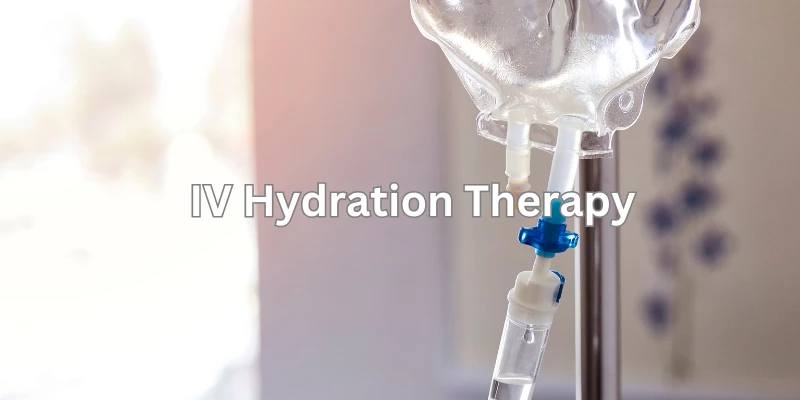What Is IV Hydration Therapy and How Can It Help Me?
Feeling run down? Revitalize yourself with IV Hydration Therapy!
I got a chance to try Vitamin IV Hydration Therapy and it was a very pleasant and relaxing experience at Medici Urgent Care and Wellness Center.
As a busy professional, and Mom with an active lifestyle, I believe this is a great option to boost the metabolism and get those vitamins and minerals you need.
Schedule your appointment today at www.mdmedici.com
Watch the video below for a full review:
IV hydration therapy is a treatment that can have many benefits, but there are also a few risks to be aware of.
In this article, we’ll take a look at what IV hydration is, how it can help, and the risks associated with IV hydration therapy.
We’ll also walk you through what to expect before, during, and after your IV hydration therapy.
What Is IV Hydration Therapy?
IV hydration therapy is a treatment that delivers fluids and electrolytes directly to the bloodstream. This can be used to treat dehydration, hangovers, migraines, and fatigue, or for preventive purposes.
Some of the benefits associated with IV hydration therapy include improved mental clarity, increased energy levels, and faster recovery from physical activity. However, there are also some risks to be aware of, such as potential infection at the site of the IV.
If you’re considering IV hydration therapy, it’s important to talk to your doctor first to see if it’s right for you. They can help you weigh the risks and benefits to determine if this treatment is a good option for you.
How Can IV Hydration Therapy Help Me?
IV hydration therapy can have many benefits, but there are also some risks to be aware of. If you’re considering IV hydration therapy, it’s important to talk to your doctor first to see if it’s right for you.
What Are the Risks of IV Hydration Therapy?
IV hydration therapy can have many benefits, but there are also some risks to be aware of. Here are three potential risks associated with IV hydration therapy:
1. Needle puncture: Any time a needle is used, there is a risk of puncturing the skin and causing bleeding. If the needle is not inserted properly, there is also a risk of puncturing a blood vessel, which can lead to bruising or swelling.
2. Infection: There is a small risk of infection at the site of the IV, particularly if the needle or catheter used to insert the IV is not sterile. Infections can usually be treated with antibiotics, but in rare cases, they can become serious and require hospitalization.
3. Fluid overload: If too much fluid is given through an IV, it can cause fluid overload, which can lead to heart failure or other serious complications. This is why it’s important to have an IV only when necessary and to monitor the amount of fluid that is being given carefully.

How Do I Prepare for My IV Hydration Therapy?
When preparing for IV hydration therapy, it’s important to drink plenty of fluids and avoid caffeinated beverages, smoking, and pain medication in the hours leading up to the therapy.
This will help ensure that you’re properly hydrated and that the therapy is as effective as possible.
It’s also important to choose the right type of IV therapy for your needs. There are a variety of different types of IVs available, and your doctor will be able to help you choose the one that’s right for you.
Once you’ve chosen the right type of therapy, the next step is to find a reputable provider. Make sure to do your research and choose a provider who has experience administering IV therapy.
When you arrive for your appointment, be sure to let the staff know if you have any allergies or medical conditions that could potentially affect the therapy. Once everything is ready to go, the IV will be inserted and you’ll start receiving the fluids.
During the treatment, it’s normal to feel a bit chilly or have a mild headache. These side effects should go away within a few hours. If they don’t, or if you start feeling worse, be sure to let your doctor know.
IV hydration therapy can be an effective way to treat dehydration, hangovers, migraines, and fatigue. However, it’s important to prepare for the treatment and understand the potential risks involved.
Talk to your doctor if you’re considering IV hydration therapy to see if it’s right for you.
What Should I Expect During and After My IV Hydration Therapy?
During the procedure, you can expect the sensation of the needle being inserted and the infusion of the saline solution. You may feel a coldness as the solution enters your body.
After the therapy is completed, the needle will be removed and a Band-Aid will be placed on the injection site.
It’s important to drink plenty of fluids over the next 24 hours to help flush the saline solution out of your system.
You may also experience some mild side effects, such as headache, dizziness, or diarrhea.
These side effects should resolve within a day or so. If they don’t, or if you experience any other problems, be sure to call your doctor.


